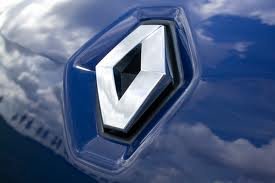Renault Prepares to Resume Iran Exports

"We can start the preparatory work" with suppliers while "waiting for the go-ahead on the possibility to exports parts to Iran," said Gilles Normand, chairman of the automaker's Asia-Pacific region in an interview in Tehran.
Such a move would require an opening of financial transactions channels with the country, he said.
A preliminary agreement last month between Iran and six world powers in Geneva allows for the lifting of some sanctions on the auto industry.
Normand, speaking on the sidelines of the Auto Industry International Conference held in the Iranian capital on Saturday, said implementation will take time. "There is work to be done since the agreement was signed and clarification on the rules is expected around January 2014," he said. "We are following an extremely pragmatic policy and respect international regulations."
Renault and French rival PSA/Peugeot Citroen until recently shipped semi-built cars to Iran as component kits for assembly by local partners Iran Khodro and SAIPA.
PSA's 458,000 sales amounted to a 29 percent market share at the 2011 peak, while Renault claimed 6 percent of national registrations. Renault stopped the export of car parts in June. PSA halted shipments in February 2012 after entering an alliance with General Motors.
PSA is also considering returning to Iran as France's two automakers bid to reclaim their market position.
Iran's domestic car industry is unusually developed for the Middle East and production peaked at 1.6 million cars in 2011. Iran has potential to be a profitable, fast-growing auto market soon exceeding 2 million vehicles annually, analysts say.
Iran has been under a series of international financial, energy and trade sanctions meant to pressure it to curb its nuclear program. Iran denies it seeks to build nuclear weapons. In return for undertakings by Tehran to freeze key parts of its nuclear program, the so-called P5+1 powers agreed on November 24 to a six-month suspension of trade sanctions on selected goods including auto parts.
U.S. carmakers remain barred from Iran by domestic rules including a trade embargo that is not subject to any immediate relief.
Normand said he hoped the six-month accord, seen as a first step toward a final deal, will lead to "new overtures" toward the Iranian market, where half of all vehicles are more than 25 years old. Iran's market has "immense growth potential," he said.
With a volume of 100,783 vehicles sold in the country last year, Iran was Renault's eighth-biggest global market by sales, Automotive News Europe reported on Aug. 6. On July 26, Renault was forced to write off the entire value of its Iran operations because of the sanctions, leading to a 512 million euro charge against its second-quarter earnings.
Related News


